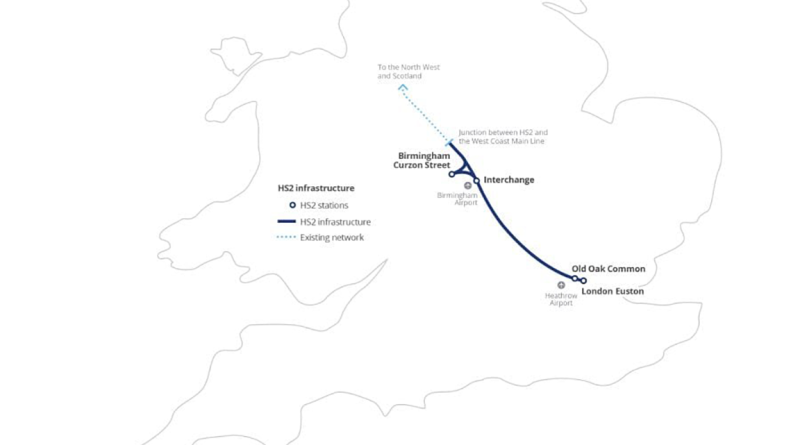Rail Leaders Push for HS2 Extension — Extending to Euston and Crewe Could Be a £20 Billion Opportunity
The HS2 project, once considered the future of Britain’s high-speed rail network, has faced multiple challenges, from rising costs to political uncertainty. Recent analysis by the High Speed Rail Group (HSRG) suggests that extending the line to Euston in London and Crewe in Cheshire could unlock its full financial potential.
With the UK government weighing the future of this extension, rail industry leaders argue that the additional investment required could result in long-term savings. According to HSRG, building the line to central London and Crewe would enable the government to lease the operating rights for much more than it could under the current plan, which would terminate at Old Oak Common and Birmingham.
The Financial Logic Behind Extending HS2 to Euston and Crewe
At the core of HSRG’s proposal is the significant increase in long-term value that a full extension would bring. As it stands, the HS2 line is valued at only £5 billion if it ends at Old Oak Common and Birmingham. Extending the line to Euston and Crewe could increase its value to £20 billion, making the additional £11.5 billion investment a sound financial decision.
HSRG recommends selling the rights to operate the line through long-term concessions, similar to how the HS1 route was handled. In 2017, the government sold the concession for HS1 to private investors for £3 billion, and a similar strategy for HS2 could significantly boost returns. This approach would also ensure that the line is fully utilized, delivering greater value for both the government and taxpayers.
Infrastructure Costs vs. Future Benefits
Building the HS2 line to Euston and Crewe involves a large upfront investment, but rail experts argue that the long-term benefits far outweigh the costs. An extension would not only enhance the value of the project but also improve the overall efficiency of the UK’s rail network. The National Audit Office has cautioned that ending the line at Old Oak Common would lead to capacity issues on the West Coast Mainline, as high-speed trains would merge onto already congested tracks.
Completing the line would create more seamless connections between London, the Midlands, and Northern England, reducing travel times and alleviating pressure on existing rail services. This would also boost the overall economic productivity of these regions, helping to rebalance the UK’s economy and reduce the north-south divide.
Political and Economic Barriers to HS2’s Expansion
Despite the clear benefits, extending HS2 faces political and financial barriers. Chancellor Rachel Reeves has hinted that funding for the extension could be included in the upcoming budget, but the specifics of how this will be financed are uncertain. The government has already reduced the scope of the project, with plans to end the northern leg beyond Birmingham.
Labour has been critical of the Conservative government’s handling of HS2 but remains divided on its own approach to the project. While the party has pledged to nationalize train operations, it is also seeking private investment for infrastructure, creating a conflict between long-term goals and short-term cost concerns. Rail industry leaders, including Hitachi and Siemens, have argued that cutting infrastructure investments now would damage the UK’s competitiveness and investor confidence.
The HS2 extension to Euston and Crewe represents a crucial investment in the future of UK rail. Rail companies such as Hitachi, Siemens, and Avanti West Coast support the extension as a means to improve national connectivity, reduce traffic congestion, and promote greener transport options. By completing the extension, the UK can ensure better connections with international services like Eurostar, enhancing its position as a global transport hub.
Sources:
